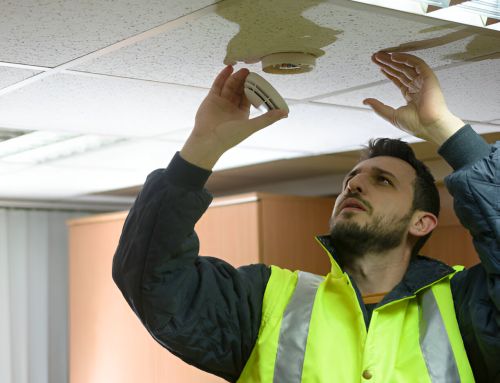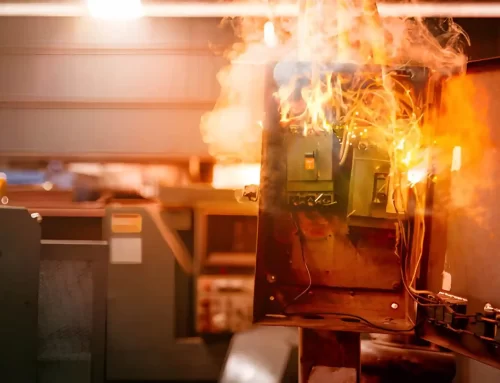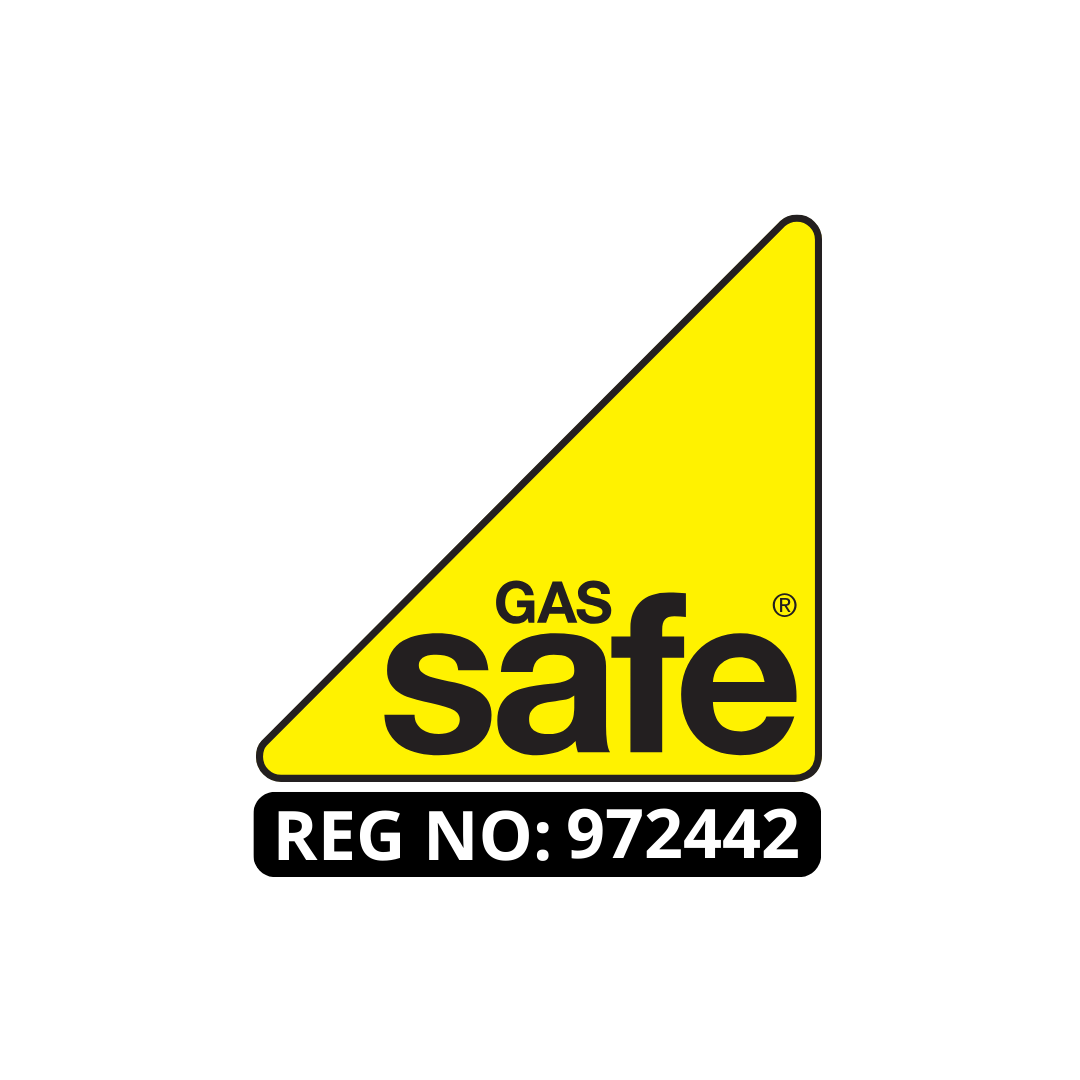
The Fire Safety Certificate for Flats is a crucial document for landlords and property owners. It guarantees compliance with stringent fire safety regulations in the UK. As fire safety legislation evolves, understanding the requirements becomes increasingly essential. From risk assessments to emergency preparedness, various aspects demand attention. The details may surprise you and could have significant implications for property management.
Main Points
- A Fire Safety Certificate verifies compliance with fire safety regulations, ensuring essential safety measures are in place for residents in flats.
- Legal requirements in the UK mandate a fire risk assessment and regular updates of fire safety measures under the Regulatory Reform (Fire Safety) Order 2005.
- Property owners or managing agents are responsible for obtaining the Fire Safety Certificate, including implementing safety equipment and submitting applications.
- Hiring certified assessors ensures thorough evaluations of fire safety measures, determines dangers, and ensures compliance with current regulations.
- Compliance with fire safety standards not only enhances resident safety but also increases property value and reduces legal liabilities for landlords.
What Is a Fire Safety Certificate for Flats?
A fire safety certificate for flats serves as an important document that verifies compliance with fire safety regulations. This certificate is typically issued after a thorough inspection of the property, ensuring that all necessary safety measures are in place.
These measures often include adequate fire alarms, emergency exits, and fire extinguishers, as well as proper electrical installations.
The certificate is essential not only for the safety of residents but also for demonstrating that the property owner or landlord has taken responsible steps to protect tenants from fire risks.
Regular inspections may be required to maintain the validity of the certificate, which can vary in duration depending on local regulations.
Why Every Flat Owner or Landlord Needs a Fire Safety Certificate
Obtaining a fire safety certificate is not just a regulatory requirement; it is a fundamental responsibility for every flat owner or landlord. This certificate serves as proof that the property meets essential fire safety standards, ensuring the well-being of all residents.
By having a valid certificate, flat owners demonstrate their commitment to safety, which can enhance tenant confidence and increase property value.
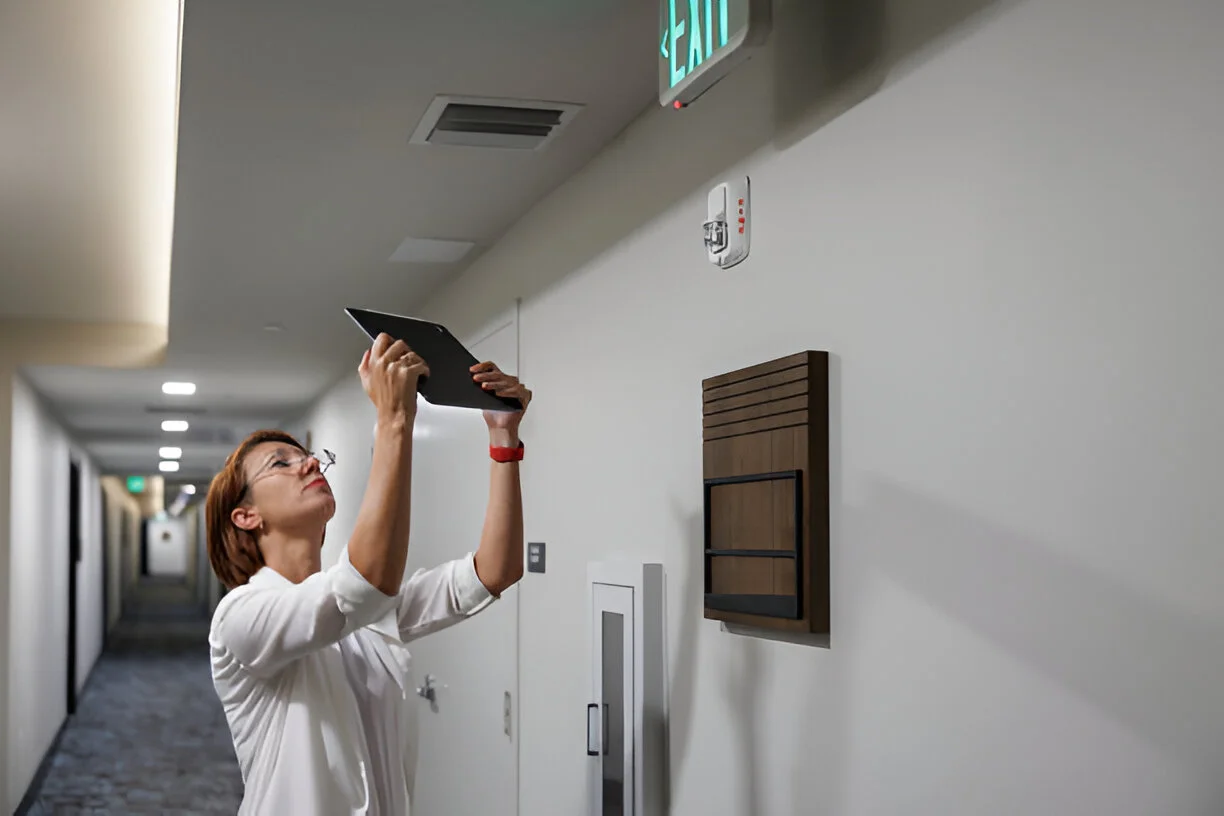
Moreover, in the unfortunate event of a fire, possessing a fire safety certificate can protect landlords from legal liability, as it illustrates compliance with safety regulations.
It also plays a critical role in insurance matters; many insurers require proof of fire safety measures before providing coverage.
Ultimately, a fire safety certificate not only safeguards lives but also fosters a secure living environment, making it an indispensable asset for responsible property management.
The Legal Requirements for a Fire Safety Certificate for Flats in the UK
While managing the complexities of property management, flat owners in the UK must adhere to specific legal requirements for obtaining a fire safety certificate.
The Regulatory Reform (Fire Safety) Order 2005 mandates that all residential buildings, including flats, conduct a fire risk assessment to discover possible fire threats and implement measures to mitigate them. This assessment must be regularly reviewed and updated, ensuring that adequate fire safety measures are in place, such as smoke alarms, fire doors, and escape routes.
Additionally, the Building Regulations 2010 outline safety standards for construction and alterations to flats, which must be considered during the fire safety certificate application process.
Flat owners need to maintain accurate records of fire safety measures and assessments, as these documents serve as evidence of compliance with legal requirements.
Who Is Responsible for Obtaining the Certificate?
Who is ultimately responsible for securing a fire safety certificate in flats? The duty typically falls on the owner or managing agent of the property. This includes individuals or organisations that oversee the maintenance and safety of the building.
In multi-occupancy buildings, it is often the responsibility of the freeholder or landlord to guarantee compliance with fire safety regulations.
Additionally, leaseholders may also have a role, particularly if they are responsible for communal areas or if specific obligations are outlined in their lease agreements.
It is essential for all parties involved to understand their responsibilities, as failure to obtain a fire safety certificate can lead to legal repercussions and risks to residents’ safety.
In some cases, professional fire safety consultants may be engaged to assist in the process, making certain that all regulations are met and that the building adheres to the necessary safety standards.
Step-by-Step Process to Get a Fire Safety Certificate for Flats
Securing a fire safety certificate for flats involves a systematic way to guarantee compliance with safety regulations. The process can be broken down into several key steps:
- Assess the Property: Conduct a thorough inspection of the flat to recognise fire risks.
- Implement Safety Measures: Install necessary fire safety equipment, such as smoke detectors, fire alarms, and extinguishers.
- Prepare Documentation: Gather required documents, including building plans, safety policies, and maintenance records.
- Submit Application: Contact the local fire department or relevant authority to apply for the fire safety certificate.
- Schedule an Inspection: Arrange for an official inspection by fire safety officials to evaluate compliance with safety standards.
How Often Should You Renew a Fire Safety Certificate?
How frequently must a fire safety certificate be renewed to secure ongoing compliance with safety regulations? Generally, property owners should renew their fire safety certificates every three to five years. However, specific regulations can vary by location and building type, necessitating periodic reviews to ascertain compliance.
The table below outlines common renewal timelines for different types of properties:
| Property Type | Recommended Renewal Frequency |
|---|---|
| Residential Flats | Every 3 years |
| Commercial Buildings | Every 5 years |
| Mixed-Use Properties | Every 3-5 years |
| Temporary Structures | Annually |
Regular inspections and updates to safety measures can also dictate the need for earlier renewals. Adhering to these guidelines not only helps maintain compliance but also secures the safety of all residents and visitors.
Common Mistakes to Avoid When Applying for a Fire Safety Certificate for Flats
When applying for a fire safety certificate for flats, applicants often overlook critical details that can lead to delays or rejections. Understanding these common mistakes is essential for a smooth application process.
- Incomplete Documentation: Submitting forms without all required signatures or supporting documents can result in immediate rejection.
- Ignoring Local Regulations: Failing to familiarise oneself with local fire safety laws may lead to non-compliance issues.
- Inaccurate Floor Plans: Providing outdated or incorrect layouts can misrepresent the flat’s fire safety features.
- Neglecting Maintenance Records: Not including evidence of regular fire safety checks can weaken the application.
- Poor Communication with Authorities: Not engaging with local fire safety officials may lead to misunderstandings or missed requirements.
Costs Involved in Getting a Fire Safety Certificate for Flats
Understanding the costs involved in obtaining a fire safety certificate for flats is essential for applicants who wish to guarantee compliance with local regulations. The expenses can vary considerably based on several factors, including the size of the building, location, and specific requirements set by local authorities.
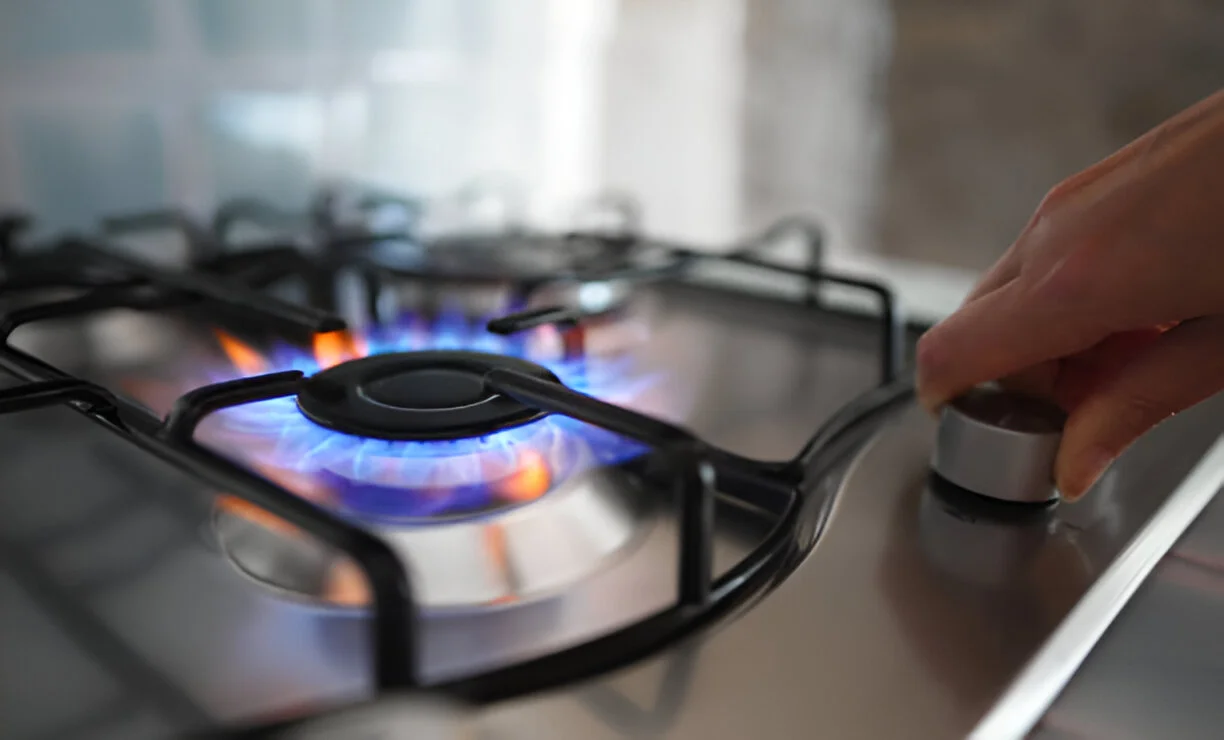
Initial costs may include application fees, which typically range from £100 to £500, depending on the jurisdiction. Additionally, applicants might need to hire fire safety consultants or engineers to conduct assessments, which can incur charges from £500 to £2,000.
Furthermore, if modifications are required to meet safety standards, renovation costs should also be factored in, possibly amounting to several thousand pounds.
Finally, ongoing costs like annual renewal fees or periodic inspections should be considered to maintain compliance. Overall, budgeting for these expenses guarantees a smoother application process and adherence to safety regulations.
Benefits of Staying Compliant with Fire Safety Regulations
Staying compliant with fire safety regulations offers numerous advantages that extend beyond mere legal obligations.
By adhering to these standards, flat owners and managers can guarantee the safety of residents while enhancing property value and community trust.
- Enhanced Safety: Reduces the risk of fire incidents, protecting lives and property.
- Insurance Benefits: Compliance can lead to lower premiums or better coverage from insurers.
- Increased Property Value: Well-maintained safety measures can make properties more attractive to buyers and tenants.
- Legal Protection: Meeting regulations minimises the risk of fines or legal actions related to fire safety violations.
- Community Confidence: Demonstrating a commitment to safety fosters trust among residents and enhances the overall reputation of the property.
Benefits of choosing a certified assessor for your inspection
Choosing a certified assessor for fire safety inspections guarantees a thorough evaluation of a property’s safety measures. Certified assessors possess extensive training and knowledge of fire safety regulations, ensuring compliance with current standards. Their expertise allows for the indication of insecure conditions that may be overlooked by untrained personnel.
The benefits of hiring certified assessors include improved safety, enhanced property value, and peace of mind for residents. By ensuring a detailed inspection, property owners can mitigate risks effectively.
| Benefits | Details |
|---|---|
| Expert Knowledge | Certified assessors stay updated on regulations. |
| Thorough Inspections | Detailed evaluation of all fire safety measures. |
| Danger reduction | Locating possible fire risks before they escalate. |
| Increased Property Value | Compliance can enhance marketability and value. |
Selecting a certified assessor ultimately contributes to a safer living environment for all residents.
Frequently Asked Questions
Can I Apply for a Fire Safety Certificate Online?
The individual inquired about the possibility of applying for a fire safety certificate online. Generally, many jurisdictions offer online applications, streamlining the process and enhancing accessibility for applicants seeking necessary fire safety documentation.
What Happens if I Don’t Obtain a Fire Safety Certificate?
Failure to obtain a fire safety certificate may result in legal penalties, increased liability in case of incidents, and possible insurance complications. Additionally, it could jeopardise the safety of occupants and the property itself.
Are There Specific Requirements for High-Rise Flats?
Specific requirements for high-rise flats often include enhanced fire-resistant materials, accessible fire exits, and regular safety audits. Compliance with local regulations guarantees resident safety and minimises risks associated with finding dangerous situations in taller buildings.
Can I Use a Previous Inspection Report for My Application?
The individual queried whether a prior inspection report could suffice for their application. It is generally advisable to consult relevant authorities, as regulations may dictate the necessity for updated assessments to guarantee compliance and safety standards are met.
How Do I Appeal a Denied Fire Safety Certificate Application?
To appeal a denied application, one should review the denial reasons, gather supporting documentation, and submit a formal appeal to the relevant authority, ensuring compliance with specified guidelines and deadlines for the appeal process.
Conclusion
In summary, obtaining a Fire Safety Certificate for flats is not only a legal obligation but also an essential step in ensuring the safety and well-being of residents in multi-occupancy buildings. By understanding the requirements and processes involved, property owners can effectively mitigate risks and foster a secure living environment. Staying compliant not only protects tenants but also enhances the property’s value, making it a significant investment for every flat owner or landlord.
About the Author: LandlordCertificate
Related Posts
Get Social
Recent Posts
- Top Reasons to Invest in Fire Alarm Installation London for Safety and Compliance
- Gas Safety Certificate London: Protecting Occupants and Property Value
- EPC London: Everything You Need to Know About Energy Performance
- Asbestos Survey London: Professional Services for Safe Buildings
- EICR London Safety Checks: Ensuring Electrical Compliance for Every Property


